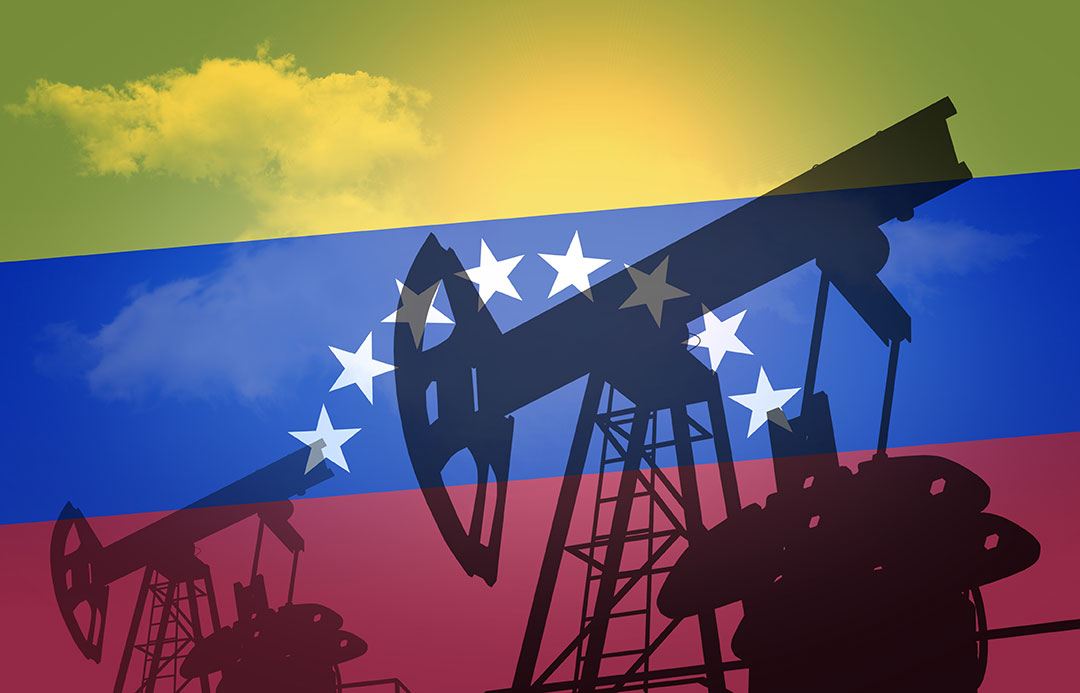Venezuela May Redirect Oil Exports Away from China as U.S. Eases Sanctions
(Reuters) — Exemptions to sanctions on Venezuelan oil exports that the U.S. is mulling should not result in a large crude production surge in the OPEC country, instead taking barrels away from its current main destination China, experts said.
The administration of U.S. President Joe Biden plans to provide some broad easing of energy-related sanctions for Venezuela's oil and gas sector almost immediately, a senior U.S. State Department official told Reuters on Wednesday, in response to a deal on guarantees for the 2024 presidential election reached between the Venezuelan government and the country's opposition.
The deal, signed in Barbados on Tuesday, laid out some terms for the election, but did not include the lifting of public office bans on key opposition figures or the release of political detainees.
The same day, Trinidad and Tobago announced the U.S authorized a license amendment clearing the way for a joint gas project with Venezuela.
Venezuela has produced an average 780,000 barrels per day (bpd) of crude so far this year, above the 716,000 bpd of 2022, but still far from an official goal of 1.7 million bpd for 2024. The Biden administration has been seeking ways to boost global flows of oil to alleviate high prices caused by sanctions on Russia and OPEC+ output cuts. Venezuela's exports are unlikely to offset those cuts absent a big increase in investment, the experts said.
Two decades of mismanagement and insufficient investment, coupled with U.S. oil sanctions since 2019, are expected to stymie state-run PDVSA's ability to make a quick comeback to cash-paying oil markets and offer its crude at fair prices.
The most significant oil license so far granted by Washington as part of its sanction-easing strategy was to Chevron Corp in November. The company has almost doubled joint output with PDVSA and resumed exports to Venezuela's former main market, the United States.
However, with about 20% of the country's total output, Chevron's joint ventures have been unable to turn around the national industry. PDVSA continues struggling to raise capital, import rigs, repair refineries, advance projects and secure relevant partnerships.
Venezuela's crude output remains at a fraction of the 2.4 million bpd it averaged before U.S. financial and oil sanctions began to be imposed in 2017. Only one drilling rig is active in the country versus more than 80 in 2014, according to Baker Hughes data.
CORE INVESTMENT
Venezuela needs a long list of items to once again become a relevant oil exporter, according to analysts, including: dozens of drilling rigs, billions of dollars in infrastructure replacements for refineries, flow stations and crude upgraders and a reliable power supply.
OPEC allies have excluded Venezuela from quotas and given the country room to pump more. But experts predict a slow road to recovery as joint venture partners are authorized one-by-one by Washington to expand operations and exports.
Venezuela's oil output is expected to grow by between 170,000 and 200,000 bpd in the next two years if Chevron, Eni and Repsol stick to expansion plans approved by the U.S. since last year, and if Maurel & Prom obtains a similar permit to get debt repaid by exporting Venezuelan crude, said Francisco Monaldi from Rice University's Baker Institute.
Venezuela could also inaugurate gas exports if U.S.-authorized negotiations with Trinidad for joint offshore projects progress.
With U.S. authorizations potentially clearing the way for more exports to the U.S., Europe and the Caribbean, Venezuela is expected to divert a larger portion of its oil currently going to China, the analysts said.
Venezuela's exports to China both directly and through trans-shipments hubs have already fallen to 437,000 bpd so far this year, from 477,000 bpd in 2022, according to vessel monitoring data.
If Venezuela and China reach a pact to resume debt payments and expand joint oil projects, that could add some extra 100,000 bpd of output in the 2-year period, Monaldi added, potentially expanding exports to that destination again.
But with a limited scope for sanctions easing and no fresh investment allowed in the meantime, it is difficult to predict an overall output of more than 1.1 million bpd in the years to come, he said.
Related News
Related News

- Keystone Oil Pipeline Resumes Operations After Temporary Shutdown
- Freeport LNG Plant Runs Near Zero Consumption for Fifth Day
- Biden Administration Buys Oil for Emergency Reserve Above Target Price
- Mexico Seizes Air Liquide's Hydrogen Plant at Pemex Refinery
- Enbridge to Invest $500 Million in Pipeline Assets, Including Expansion of 850-Mile Gray Oak Pipeline





Comments